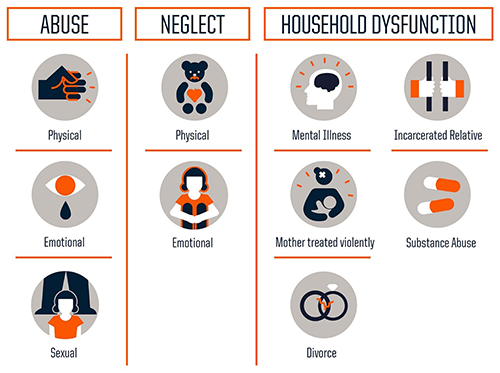
The nail-biting, mind-numbing, and anxiety-inducing condition of stress is one that most of us recognize. The daily stressors we experience, however, can be further classified into one of three categories: positive, tolerable, or toxic stress responses. Each type of stress induces different immediate physiological and behavioral effects. In children, these responses are amplified by the potential for long-lasting developmental effects.
Positive stress involves the mild and brief elevation of heart rate, blood pressure, and stress hormones, such as cortisol. These positive stressors encourage healthy growth in children and might include the introduction of a new caregiver, the first day of school, or even a piano recital.
Tolerable stressors, like the loss of a loved one or a natural disaster, involve similar but more severe stress markers. Connection to a supportive adult or caregiver is crucial to the development of healthy stress response systems and coping mechanisms in children, so that the physiological effects of mild adversity are buffered and eventually resolved.1
Toxic stress is characterized by chronic and/or extreme adversity, largely encompassed by Adverse Childhood Experiences (ACEs). ACEs include abuse, neglect, household dysfunction, or systemic stressors, and are proven inextricably linked to chronic illness.

(Graphic Source: Centers for Disease Control and Prevention; Credit: Robert Wood Johnson Foundation)
The toxic stress response in children provides a framework to understand the root of these biological consequences.2 Prolonged activation of the stress response system wears down the human body both physically and mentally. The immune system becomes compromised, other organ systems become vulnerable to deterioration, and brain development is interrupted or altered entirely.3
Especially without access to supportive and caring adults, young children experiencing extreme adversity display weakened brain architecture – maltreated children present abnormalities such as:4
- Overactivity of the amygdala, which gauges threats and dictates emotional responses.
- Overly low or high cortisol levels, which affect everything from learning and socialization to immune health and cognitive processes.
- Decreased volume in the hippocampus, cerebellum, and prefrontal cortex, which are roughly responsible for learning and memory, motor functioning, and behavioral and emotional regulation respectively.
Research has further linked ACEs to conditions such as heart disease, diabetes, depression, substance abuse, cancer, maternal health complications, and even early death.5 Some conditions are a direct consequence of stress, while many others are caused or exacerbated by the unhealthy behaviors which result from stress.
Luckily, the health effects are not always irreparable.
The silver lining in all these disturbing discoveries is the knowledge of how best to combat the observed physiological effects. Through prevention and early intervention, stress-related health effects can be mitigated or even reversed. Programs that provide positive childhood experiences offer opportunities for children to receive encouragement and caring. Volunteer & Partner Services’ programs such as BeFriend-a-Child, Body Safety, and Study Buddy contribute to that effort by providing nurturing support systems for children and families, ideally preventing or interrupting ACEs and toxic stress along the way.
Article by Isha Melige, Assistant VPS Program Coordinator.
1Center on the Developing Child (2007). The Impact of Early Adversity on Child Development (InBrief). Retrieved from www.developingchild.harvard.edu.
2“What Are Aces? And How Do They Relate to Toxic Stress?” Center on the Developing Child at Harvard University, 30 Oct. 2020, developingchild.harvard.edu/resources/aces-and-toxic-stress-frequently-asked-questions/.
3“Toxic Stress.” Center on the Developing Child at Harvard University, 17 Aug. 2020, developingchild.harvard.edu/science/key-concepts/toxic-stress/.
4U.S. Department of Health & Human Services, Children's Bureau. Understanding the Effects of Maltreatment on Brain Development, Child Welfare Information Gateway, Apr. 2015.
5“Adverse Childhood Experiences (ACEs).” National Center for Injury Prevention and Control, Division of Violence Prevention, Centers for Disease Control and Prevention, 3 Apr. 2020, www.cdc.gov/violenceprevention/aces/index.html.
This article posting is part of The Volunteer Post Newsletter for current and potential volunteers, sponsors and donors interested in supporting children and families in crisis. Learn more about Fairfax County Department of Family Services' Volunteer & Partner Services Program (VPS).

